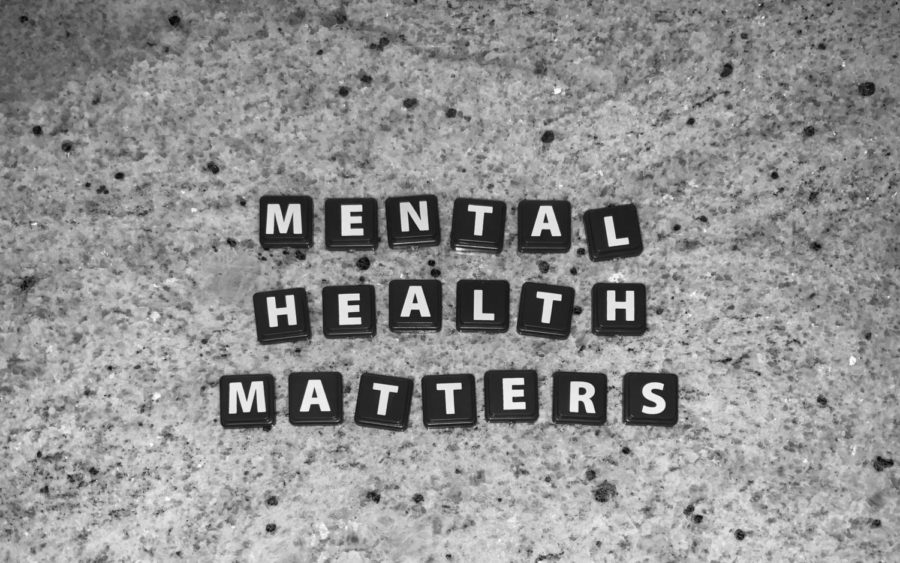Professors aim to have open communication on mental health
Over 60% of college students meet the qualifications for at least one mental health disorder.
Falling behind in class due to burnout, personal struggles or a lack of motivation is not uncommon for college students. When mental health declines, so can grades.
A study during the 2020-21 school year found that more than 60% of college students meet the criteria for at least one mental health disorder. Among others, this could include depression, anxiety and bipolar disorder.
“If you feel good and you’re okay with where you are, or even if you recognize you’re having challenges at the moment, that’s going to translate into the work that you produce, and the way that you engage in class,” said Novotny Lawrence, journalism and English associate professor.
Being open and honest with professors about mental health is something Lawrence stresses, as it builds communication and empathy. However, it is important for professors not to cross a personal boundary.
“You never want to make a student feel as if you’re trying to get into their personal lives because that’s not right, and we don’t need to do that,” Lawrence said. “Sometimes you can tell where a student has begun, and then you see their work start to taper off and you can kind of see signs of behavior that something might not be going so well.”
When a student turns in work that does not meet the standard they have set previously, Lawrence uses that to check in with the student. This could be asking if the low grade was due to a misunderstanding in the material or being there as support for the student if a personal issue was affecting them or their mental health.
“I think it has become a bit more okay to talk about it in our society, because I grew up in a time where we didn’t talk about mental health. It was ‘suck it up, what are you doing?’” Lawrence said. “The more we become open and talk about it and have a comfort with it; I am starting to see more cases.”
With struggling students, Lawrence recommends on-campus resources, such as Student Counseling Services.
For everyday help, Carolyn Cutrona, a distinguished professor in psychology, recommends getting enough sleep, exercising and starting a gratitude diary. Here, someone can list what they are grateful for and things that went well that day.
“When your mental health deteriorates, everything deteriorates,” Cutrona said. “If you’re so depressed and anxious that you can’t go to class, you can’t do your work, you can’t leave your room, it is definitely time to get help.”
Cutrona sees students benefiting from health and wellness training, self-help apps, counseling and wellbeing coaching.
“I think the post COVID environment has been challenging for everyone,” said Daniela Dimitrova, a journalism professor. “I’ve definitely seen my students have more need for support. That can be even, keeping the door open and saying, ‘I have office hours for students.’ And not even just saying ‘I have office hours,’ but kind of inviting people to come and talk to me. I’ve noticed this one-on-one support and conversation is really important.”
Dimitrova recognizes that for some, mental health is still a taboo topic to discuss. She agrees that the on-campus resources provided are the most beneficial and includes them in her class syllabus.
“It’s hard for someone to stand up and say, ‘Hey, I have a mental health issue,’” Dimitrova said. “Open communication is more of being proactive in saying what the resources are and inviting them to come talk if they want. But also normalizing that this is a challenge that is not unusual, and many people in the U.S. and other countries experience it, and making it okay to discuss.”
Along with professional resources, having a group that a student feels comfortable discussing mental health with is important. Dimitrova recommends finding a support system of friends or family to talk to.
Your donation will support the student journalists of the Iowa State Daily. Your contribution will allow us to purchase equipment, send our student journalists to conferences and off-set their cost of living so they can continue to do best-in-the-nation work at the Iowa State Daily.







